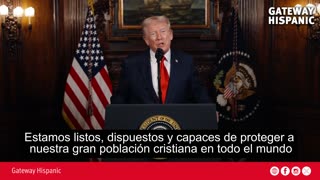Premium Only Content

Did the right actually win in Bolivia?
Did the Right Really Win in Bolivia?
Bolivia is heading into a presidential runoff for the first time since its return to democracy in 1982, after voters rejected for the first time in two decades a candidate from Evo Morales’ Movement for Socialism (MAS). This marks a historic shift, as the MAS has dominated Bolivian politics for twenty years. Many celebrated the outcome as a victory for the right, but the picture is more complex.
Among the two candidates advancing to the second round, neither can be clearly labeled as traditionally right-wing. Rodrigo Paz Pereira, son of former president Jaime Paz Zamora, is seen as a centrist reformer rather than a conservative. Although his roots lie in the Revolutionary Left Movement (MIR), a historic center-left party that gradually moved toward moderation, he is now aligned with the Christian Democratic Party (PDC), a centrist to center-right force grounded in Christian democracy. Paz presents himself as a moderate voice, advocating “capitalism for all,” reform, transparency, and inclusivity. His candidacy has attracted support from disillusioned MAS voters as well as parts of the right seeking a less polarizing figure.
On the other side is Jorge “Tuto” Quiroga, a former president who more openly embraces liberal economic policies. He leads the Libre alliance (Liberty and Democracy), made up of the Revolutionary Left Front (FRI)—a group that began on the left but has since shifted to a populist center-right orientation—and the Social Democratic Movement. Quiroga advocates for structural reforms, partial privatization of natural resources such as lithium, and stronger trade ties with the United States. His platform is more clearly identified with traditional right-wing liberalism and pro-market policies.
The ideological landscape, however, is blurred. Rodrigo Paz cannot be described as a classic leftist, but neither is he fully right-wing. His centrist positioning contrasts with Quiroga’s more overtly liberal program. Both, in different ways, symbolize the exhaustion of the MAS era and the desire for change.
Therefore, it would be misleading to say that the right has decisively won. What has truly happened is the collapse of the MAS monopoly, giving way to a contest between a centrist reformer with leftist origins and a traditional liberal conservative. The final outcome of the runoff on October 19 will depend on how voters weigh these nuances, reflecting not a simple right-left shift, but a more complex realignment in Bolivia’s political spectrum.
-
 1:05
1:05
Gateway Hispanic
14 hours agoDonald Trump condena la persecución contra cristianos en Nigeria
2 -
 LIVE
LIVE
meleegames
4 hours agoMelee Madness Podcast #58 - They Changed What ‘It’ Was & It’ll Happen to You
91 watching -
 2:32:46
2:32:46
megimu32
5 hours agoOn The Subject: Why K-Pop Demon Hunters Feels Like 90s Disney Again
23.2K9 -
 1:38:28
1:38:28
Glenn Greenwald
8 hours agoThe Fraudulent GOP War Against Tucker and Nick Fuentes; Dick Cheney: Hero of the Resistance; Lindsey Graham's Deranged RJC Comments | SYSTEM UPDATE #544
103K114 -
 LIVE
LIVE
ThePope_Live
4 hours agoRedsack with the boys Cheap, Jah and Nova!
530 watching -
 LIVE
LIVE
Hernandez2787
7 hours agoArc Raiders - 1st Playthrough/ Celebrating My Anniversary as Sergeant First Class in the US Army
70 watching -
 48:42
48:42
Donald Trump Jr.
9 hours agoCommunism vs Common Sense, What's Next for NYC? | TRIGGERED Ep.289
144K283 -
 LIVE
LIVE
JahBlessCreates
4 hours ago🎉Lil Music Ting
20 watching -
 1:31:25
1:31:25
The Charlie Kirk Show
8 hours agoTHOUGHTCRIME Ep. 104 — Post-Election Palette Cleanser + Tucker/Fuentes Interview Reaction
105K43 -
 4:22:59
4:22:59
tminnzy
6 hours agoSmooth Moves Only 💨 | Naraka: Bladepoint Chill Gameplay | !gx
34.3K5